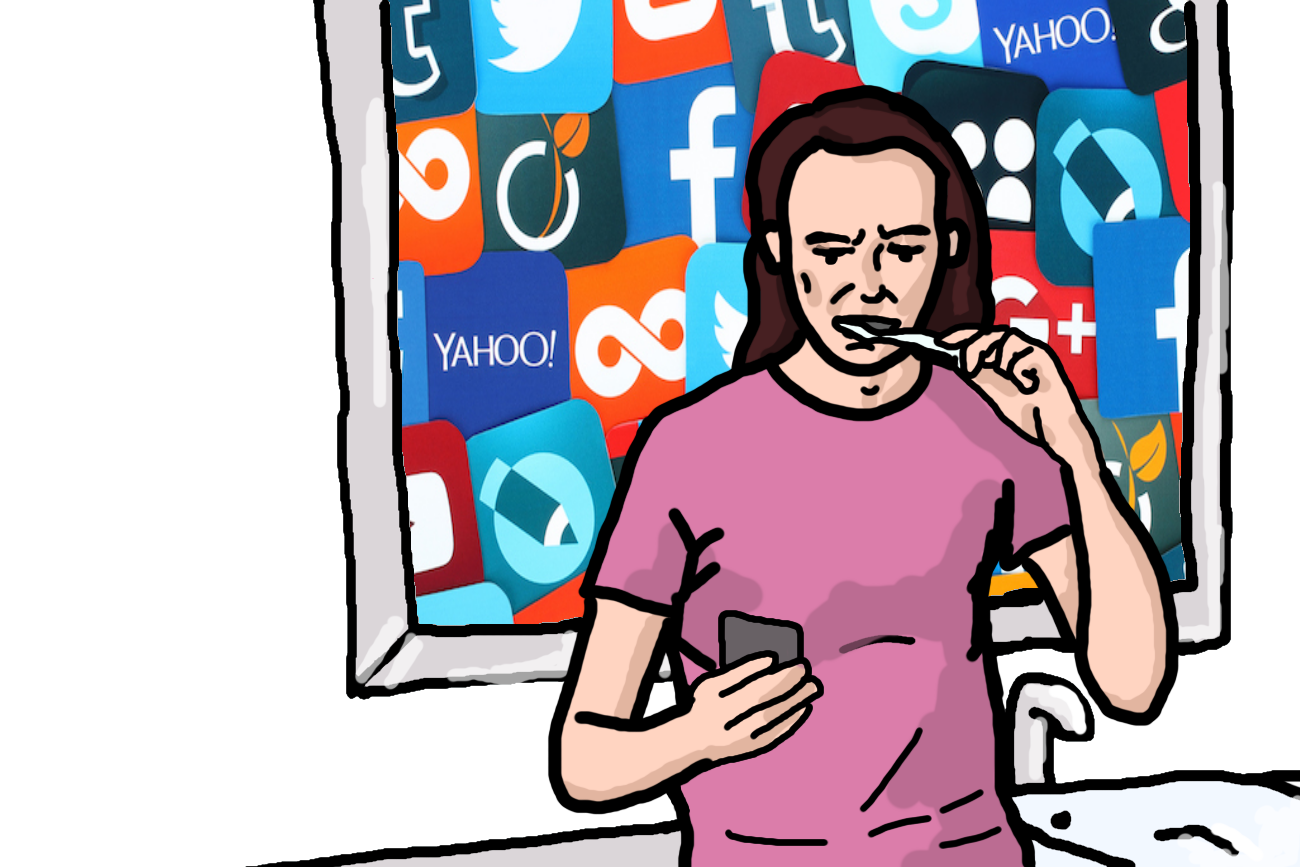As we approach the end of Michaelmas term, it is important to take time to reflect on the impact that online learning has had, not merely on academic performance, but on the wellbeing of students. While some may benefit from the increased flexibility online learning can provide, it must be acknowledged that it has taken a toll on the mental health of undergraduate and postgraduate students alike. Online learning has eroded the space between college life and home life, meaning that it is increasingly difficult to separate the two. Additionally, the transition of society events to online platforms has created a scenario in which meeting new people and making friends is a major challenge. As students become increasingly isolated, it is natural for us to turn to social media to fill the gaps in our social lives, in an attempt to connect with each other. However, becoming over-reliant on social media comes with its own harms – and these harms aren’t as innocuous as over-exposure to 5k challenges and undercooked loaves of banana bread.
The key manner in which online learning affects mental health is isolation, both academic and social. Learning online drastically distorts your perspective of how other students are faring with academic work, as it is often students who are struggling the least who have the confidence to contribute verbally to online classes. No longer can you see your own panic reflected in the eyes of your classmates as a lecturer derives complicated equations at rapid speed (yes, I am an arts student who has ended up taking classes in maths. Yes, I am aware that I did this to myself). No longer can you discreetly nudge the person beside you to confirm that they, too, are completely lost. The closest thing you can get to this confirmation is sending a “Do you understand what’s happening???” text to a friend and hoping for a thumbs-down emoji to appear next to it – and that just isn’t the same. The inability to gain a clear perspective on the relative level of difficulty of academic work is incredibly detrimental to mental health: it is easy to feel like you’re the only one struggling, to feel like you don’t deserve to be where you are. You begin to feel like an impostor (unrelated to Among Us), a feeling that is incredibly difficult to quell once it has taken hold.
“Learning online drastically distorts your perspective of how other students are faring with academic work.”
Social media is not the answer to feelings of inadequacy. In fact, it is often social media that exacerbates these feelings, because it presents us with a distorted perspective on life. There is little room for uncertainty or insecurity on social media: opinions are expressed with confidence and authority; daily life is presented with the underlying assumption that it is worth being observed. This is not conducive to quelling feelings of inadequacy or insecurity, and it is certainly not the answer to isolation. Additionally, the addictive nature of social media can be incredibly detrimental to both mental and physical health. It is incredibly easy to spend hours, even full days, scrolling through Twitter and Instagram and so on, which can lead to physical harms such as headaches and back pain, and has also been linked to increased anxiety and other mental health issues. While there has been some positive news of late regarding a potential vaccine, it is not an exaggeration to say that much of the news coverage on social media is highly negative. Of course, it is important that news outlets report accurately on current events but we should be careful not to allow this to overwhelm us. Taking time away from the constant barrage of negativity that social media often throws at us is beneficial for the mind and for the body, and in times like these, it is of vital importance that we reach out to one another – not just over text or Zoom, but in person, wherever possible under current guidelines.
Online college has taken away many of the simple social interactions we took for granted. Gone are the “quick coffees” in the Buttery that turn into hours-long discussions on life, love, and the universe. Gone are the walks across campus, and the buzz of the crowds outside lecture halls between classes. Gone are chaplaincy soup, endless society coffee hours, and sunny evenings outside the Pav. If we have learned anything from this pandemic, it is that we are, at heart, social creatures. These small, everyday interactions are vital to our mental health, and their absence causes considerable damage. This is experienced particularly keenly by first years, especially international students in Ireland for the first time: not only are they unable to see family and friends from home, it is difficult for them to meet new people.
“If we have learned anything from this pandemic, it is that we are, at heart, social creatures.”
Between restrictions on gatherings, and fatigue from online lectures and classes, in-person social interactions are incredibly limited, and it is exceedingly difficult to forge friendships over large Zoom calls. However, not all is lost. It is still possible to connect in these difficult times, if we make an effort. Arrange a socially distant walk with that person you struck up a conversation with on your course Zoom call. Book a seat in the library, even if it’s just to watch other people working. Stroll through your local area, wherever that may be, and notice the other people doing the same. While it may seem odd, it’s comforting to know that you are not alone. We’re all looking for connection, be that deep and meaningful or quick and transitory. And, one day, we will be able to connect fully again. Until then, it’s important that we step away from our screens every now and again, however hard that may be, and leave online college and the doom-scrolling through Twitter behind for a while.






